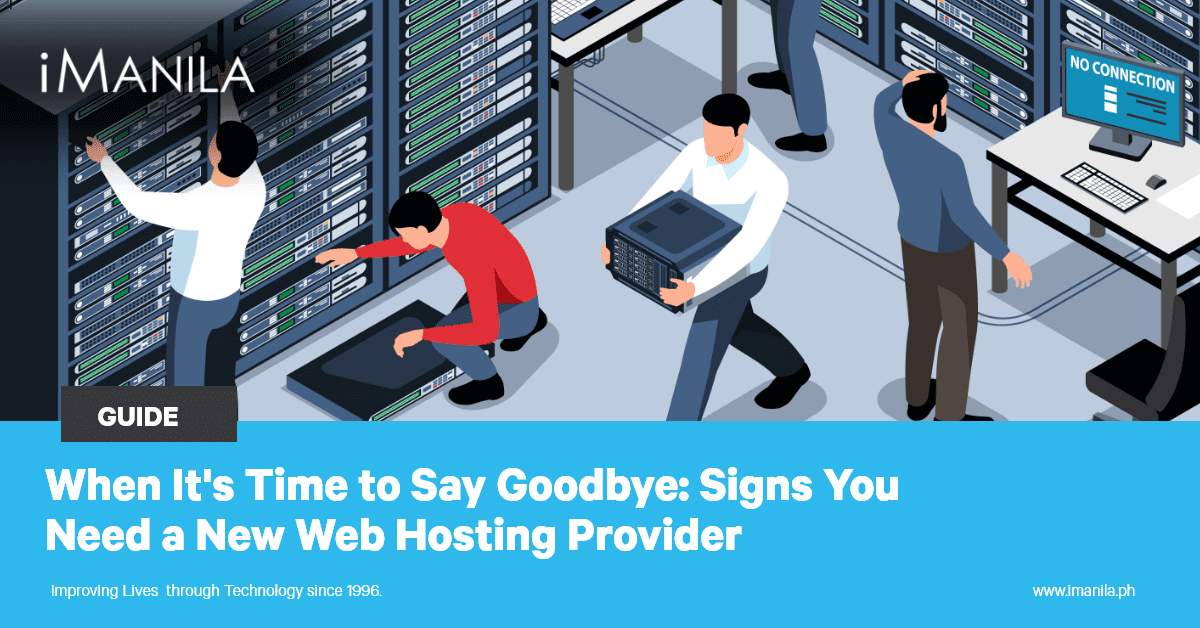Why Outsourcing Your Server Management Makes Good Business Sense
In today’s competitive business landscape, ensuring the seamless performance of your online business is paramount. One critical aspect that often demands expert attention is server management. As a business owner, you understand the importance of strategically optimizing resources and maximizing productivity. That’s why outsourcing your server management makes perfect business sense. By entrusting this vital responsibility to a specialized third-party provider, you can unlock a myriad of benefits, from cost savings to enhanced efficiency.
In this blog, we’ll delve into five reasons why outsourcing your server management is a smart move, allowing you to focus on what truly matters: growing your business and delighting your customers.
Decreases the Risk of Server Downtimes
Maintaining your server is vital to keep your customers satisfied and coming. Having a problem with your server can put your website at risk, and may lead to negative reviews and significantly affect your business. So, make sure to only employ a team of IT professionals that can handle and manage your server when running your website. Always remember that website downtimes help you lose customers faster than you think.
Server Monitoring 24/7
When you outsource your server management, you’ll be able to focus on your business without worrying about server downtimes. The experts will monitor your website 24/7 so you won’t have to, and provide you with technical support. In addition, the total cost or expense will be lower than having an in-house team.
You’ll be Ahead of Your Competition
By entrusting your server management to a specialized third-party provider, you gain access to a wealth of expertise and resources that may not be available internally. These experts will proactively address any server-related challenges, ensuring your online presence remains secure, responsive, and scalable. Outsourcing your server management also provides you with a competitive edge by leveraging the proficiency of industry professionals who continuously fine-tune your server infrastructure.
Secured of Not Getting Hacked
Ensuring that your servers are secured is one of the top priorities of every IT team that manages any server. With an outsourced team to handle your server management, you can ensure that the experts can handle any form of hacks or cyber attacks and have the necessary skills to ensure that your data remains secure.
Lets You Focus on Growing Your Business
Outsourcing your server’s management to experts provides you with a valuable opportunity to redirect your focus toward your business. By entrusting server management responsibilities to a reliable third-party provider like iManila, you can alleviate the burden of technical intricacies and time-consuming tasks. This newfound freedom allows you to concentrate on key business initiatives such as strategic planning, product development, and customer satisfaction.
Outsourcing your server management needs empowers you to optimize your efficiency, capitalize on opportunities, and stay ahead in a competitive market, all while knowing that your server infrastructure is in capable hands. So, let the experts handle the technical aspects while you focus on steering your business toward more tremendous success. Let iManila help!
With 27 years of experience in the industry and an IT company at its core, iManila, having been one of the first Internet Service Providers in the Philippines, is committed to providing our clients with innovative information technology, web, and digital solutions.
iManila is a full-service business web development company in the Philippines ready to help you with WordPress website creation or building an ecommerce website for your business. From web design and development and website update and maintenance, to web hosting, email hosting, and technical, desktop and remote support, we are your team. Aside from this, we are also a website and mobile applications development company specializing in customized web systems for businesses in different industries and a top digital marketing agency that provides a wide range of digital marketing services. Talk to us!








